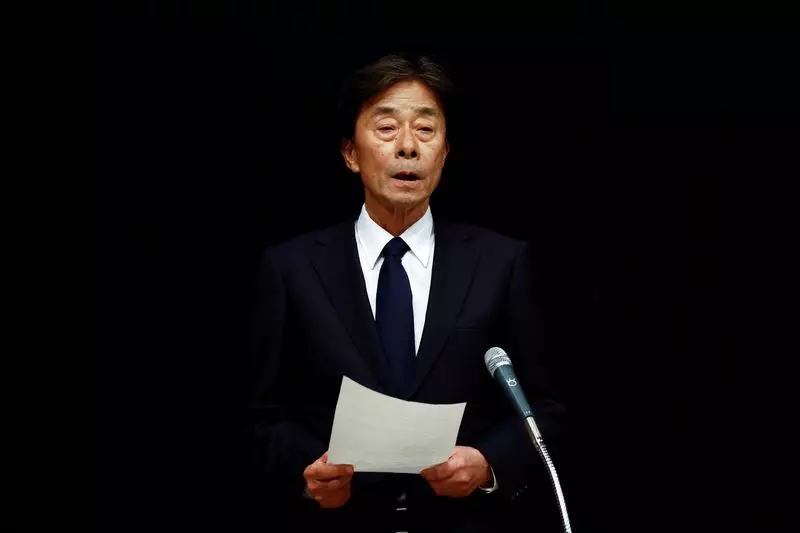The recent resignation of key figures at Japan’s Fuji Media has brought to light the deep-seated issues surrounding sexual misconduct in the entertainment industry. This shake-up, triggered by allegations against prominent TV host Masahiro Nakai, not only marks a pivotal moment for the company but also reflects broader cultural conversations regarding gender equality and corporate accountability in Japan. As advertisers flee and the pressure for a comprehensive management overhaul intensifies, the implications for Fuji Media and the entertainment landscape are profound.
Masahiro Nakai, once a household name as the face of the iconic boy band SMAP, faces serious accusations that have shaken his reputation and career. According to reports, Nakai was allegedly involved in a sexual misconduct incident during a dinner meeting that he attended alongside a Fuji TV executive and a female guest. The lack of agency for the woman, exacerbated by the late withdrawal of the executive, raises serious questions about both predatory behavior and the environments in which such misconduct occurs. The aftermath of Nakai’s actions has prompted him to announce his retirement from show business, albeit without directly confronting the allegations against him.
In the wake of these revelations, Fuji Media has embarked on a path of self-correction. Chairman Shuji Kanoh and the head of the TV unit, Koichi Minato, have stepped down amid mounting pressure from both the public and investors. This decision reflects a growing awareness that corporate governance and ethical standards need serious attention in the face of misconduct. Kanoh publicly apologized, acknowledging failures in adequately addressing the situation, and emphasizing the need for a renewed commitment to upholding human rights within the organization.
The fallout from this incident has extended to Fuji Media’s financial landscape, with well-known brands like Toyota and Kao suspending their advertising partnerships with the company. This loss of commercial stability underlines the interconnectedness between corporate reputation and ethical conduct. The subsequent shift in focus to public service announcements instead of traditional advertising has not only hampered Fuji Media financially but also underscored the significant trust deficits created by the scandal.
While the immediate events surrounding Nakai are critical, they fit into a larger narrative of sexual misconduct and cultural exploitation within Japan’s entertainment industry. The #MeToo movement, which catalyzed a global conversation about sexual violence and accountability, finds its resonance in Japan as well. The rise of activism against sexual misconduct has prompted a societal shift, moving from silence to scrutiny of high-profile figures and institutions.
Investor interests, particularly from activist firms like Dalton Investments and Zennor Asset Management, have further fueled the current transformation within Fuji Media. Their demands for a resolute restructuring of governance highlight the critical intersection between shareholder expectations and ethical accountability. The impending third-party investigation promises to provide transparency and potentially catalyze further changes that the industry requires.
The unfolding scandals reverberate across Japan’s entertainment industry, resembling a tipping point akin to those seen in other countries. High-profile cases, such as that of Johnny & Associates, reveal a pattern of systemic abuse that has persisted for decades. The dissolution of this talent agency, following investigative revelations about abuses led by its late founder, exemplifies a broader cultural re-evaluation of acceptable behaviors within the industry.
Moreover, the recent nomination of “Black Box Diaries” for an Academy Award underscores the urgent call for narratives that emphasize justice and accountability. Such artistic expressions become critical tools for highlighting the ongoing struggles of victims seeking justice in a society that has historically shunned discussions around sexual violence.
The resignation of Fujii Media leaders, though a necessary first step towards accountability, does not alone address the deep-rooted issues pervasive in the industry. Moving forward, it is pivotal for organizations to cultivate environments of respect, transparency, and human rights. As the culture of silence surrounding misconduct is challenged, accountability must be embraced, not just superficially but as a sustained effort for systemic change. For Fuji Media, the road ahead may be fraught with challenges, but its response to this crisis may ultimately shape the future of media ethics in Japan.

